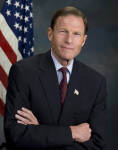WASHINGTON, D.C (SDJW)– Reactions to the speech given by Israel’s Prime Minister Benjamin Netanyahu to a joint meeting of Congress on Tuesday, March 3, were diverse. Following are some of them as compiled by San Diego Jewish World:
![]() American Israel Public Affairs Committee (AIPAC) commends the overwhelmingly bipartisan attendance and positive response to Prime Minister Netanyahu’s address to the joint meeting of Congress today. The prime minister expressed appreciation for the unbroken U.S. commitment to Israel from President Truman to President Obama. The prime minister’s message to Congress and the American people is critical at a moment when there is a danger that an agreement will be reached that fails to dismantle Iran’s program such that it does not have a path to a nuclear weapon. AIPAC believes that on a matter as crucial to U.S. national security as preventing a nuclear-capable Iran, Congress must assert its historic foreign policy role, review any agreement, and object if a bad agreement is reached. That is why AIPAC strongly supports adoption of the Iran Nuclear Agreement Review Act of 2015 (S.615) introduced by Sens. Bob Corker (R-TN) and Robert Menendez (D-NJ).
American Israel Public Affairs Committee (AIPAC) commends the overwhelmingly bipartisan attendance and positive response to Prime Minister Netanyahu’s address to the joint meeting of Congress today. The prime minister expressed appreciation for the unbroken U.S. commitment to Israel from President Truman to President Obama. The prime minister’s message to Congress and the American people is critical at a moment when there is a danger that an agreement will be reached that fails to dismantle Iran’s program such that it does not have a path to a nuclear weapon. AIPAC believes that on a matter as crucial to U.S. national security as preventing a nuclear-capable Iran, Congress must assert its historic foreign policy role, review any agreement, and object if a bad agreement is reached. That is why AIPAC strongly supports adoption of the Iran Nuclear Agreement Review Act of 2015 (S.615) introduced by Sens. Bob Corker (R-TN) and Robert Menendez (D-NJ).
*
 American Jewish Committee praised Israeli Prime Minister Benjamin Netanyahu’s clarion call for achieving the best possible deal to prevent a nuclear Iran. Netanyahu’s speech to a joint session of the U.S. Congress today came three weeks ahead of the March 24 deadline for a framework political agreement between the P5+1 and Iran, an accord that, if achieved, could lead to a permanent deal by the end of June. During his 45-minute address, Netanyahu stressed the strength and closeness of the U.S.-Israel relationship, underscored the longstanding bipartisan nature of that link, and emphasized the robust support of the Obama Administration for Israel.“No doubt, the question of Prime Minister Netanyahu’s visit to Washington could have been handled more artfully by all sides. But that’s water under the bridge, or at least it should be,” said AJC Executive Director David Harris.“The laser-like focus now ought to be on his crystal clear message to Congress regarding Iran and the prospect of what he terms a dangerous deal over its nuclear program. American Jews are rarely unanimous about anything, but most, I believe, would agree that the issue needs to be about policy, not personality or politics,” Harris added. The Prime Minister also stressed that details of the emerging deal, which, he warned, could leave Iran on the cusp of producing nuclear weapons, are a matter of public record. “The deal will not prevent Iran from developing nuclear weapons. It all but guarantees that Iran will get nuclear weapons,” said Netanyahu. “We urge everyone to read the Prime Minister’s speech and consider it on its merits,” said Harris.
American Jewish Committee praised Israeli Prime Minister Benjamin Netanyahu’s clarion call for achieving the best possible deal to prevent a nuclear Iran. Netanyahu’s speech to a joint session of the U.S. Congress today came three weeks ahead of the March 24 deadline for a framework political agreement between the P5+1 and Iran, an accord that, if achieved, could lead to a permanent deal by the end of June. During his 45-minute address, Netanyahu stressed the strength and closeness of the U.S.-Israel relationship, underscored the longstanding bipartisan nature of that link, and emphasized the robust support of the Obama Administration for Israel.“No doubt, the question of Prime Minister Netanyahu’s visit to Washington could have been handled more artfully by all sides. But that’s water under the bridge, or at least it should be,” said AJC Executive Director David Harris.“The laser-like focus now ought to be on his crystal clear message to Congress regarding Iran and the prospect of what he terms a dangerous deal over its nuclear program. American Jews are rarely unanimous about anything, but most, I believe, would agree that the issue needs to be about policy, not personality or politics,” Harris added. The Prime Minister also stressed that details of the emerging deal, which, he warned, could leave Iran on the cusp of producing nuclear weapons, are a matter of public record. “The deal will not prevent Iran from developing nuclear weapons. It all but guarantees that Iran will get nuclear weapons,” said Netanyahu. “We urge everyone to read the Prime Minister’s speech and consider it on its merits,” said Harris.
*
 American Jewish Congress President Jack Rosen said: “Whatever the circumstances were leading up to this speech, one thing remains abundantly clear: both Democrats and Republicans are vehemently opposed to Iran acquiring a nuclear weapon. Moving forward, this shared goal should remain the primary focus of both the Israeli and American governments. Prime Minister Netanyahu’s highly anticipated address to Congress elicited a strong reaction, but it did not alter the underlying dynamic between the United States and Israel. Nothing can change that. Our two countries have enjoyed, and will continue to enjoy, a unique strategic bond based on common interests and commitments to peace and security. The Members of Congress who opted not to attend this speech missed a moving display of the true energy and emotional foundation behind America’s support for Israel.”
American Jewish Congress President Jack Rosen said: “Whatever the circumstances were leading up to this speech, one thing remains abundantly clear: both Democrats and Republicans are vehemently opposed to Iran acquiring a nuclear weapon. Moving forward, this shared goal should remain the primary focus of both the Israeli and American governments. Prime Minister Netanyahu’s highly anticipated address to Congress elicited a strong reaction, but it did not alter the underlying dynamic between the United States and Israel. Nothing can change that. Our two countries have enjoyed, and will continue to enjoy, a unique strategic bond based on common interests and commitments to peace and security. The Members of Congress who opted not to attend this speech missed a moving display of the true energy and emotional foundation behind America’s support for Israel.”
*
 Americans for Peace Now‘s President and CEO Debra DeLee commented: “As expected, and despite the acknowledgement of President Obama’s bona fides on Israel, Prime Minister Netanyahu’s coming to Washington is sticking a finger in President Obama’s eye over Iran talks. Netanyahu came to the U.S. arrogantly claiming to represent all Jews, but only further estranged American Jews — who are appalled, just as many other Americans are, at the sight of an Israeli Prime Minister demanding that they choose between supporting Israel and supporting the elected president of their own country on such a critical issue. Netanyahu spoke repeatedly about his moral duty to do everything possible to ensure Israel’s security, but with every word he uttered, he further eroded his credibility as a leader and undermined the stated purpose of his controversial address to Congress: blocking Iran’s path to a nuclear weapon. Rather than seek to repair some of the damage already done by his outrageous decision to address Congress at this time, his speech on Capitol Hill has only deepened partisan divisions over support for Israel. As Netanyahu prepares to travel back home and face Israeli voters, members of Congress are left with a choice. They can adopt the positions of a foreign leader who has deliberately placed unattainable conditions on a diplomatic deal with Iran and who is urging Congressional actions that could abort an Iran deal before it is reached or render any deal dead on arrival. Or, they can support the efforts of the elected President of the United States — a president who has been adamant in his commitment to prevent Iran acquiring nuclear weapons and whose negotiators – along with negotiators from some of our closest allies — are engaged in difficult but promising diplomacy that has a real chance to yield an achievable and responsible deal. Iran negotiations have already demonstrated that diplomacy can deliver results. Now, with negotiations entering their final stretch, diplomacy must be given every possible chance to produce a deal that verifiably curbs Iran’s nuclear program. Should negotiations end without a deal, there is nothing preventing Congress and the Obama Administration from revisiting all the various policy responses, including additional sanctions, at that time. Should negotiations end with a deal that Congress dislikes, Congress can likewise revisit its legislative options at that time. As for Netanyahu, he is leaving Washington having caused immeasurable damage to the U.S.-Israel bilateral relationship, to Israel’s credibility in the U.S., to his own credibility, to the bond that American Jews have with Israel, and to the very cause that he champions – preventing Iran from becoming a nuclear weapons-armed state. We very much hope that he – or whoever will be chosen as Israel’s leader in two weeks – will work to repair that damage in the future.”
Americans for Peace Now‘s President and CEO Debra DeLee commented: “As expected, and despite the acknowledgement of President Obama’s bona fides on Israel, Prime Minister Netanyahu’s coming to Washington is sticking a finger in President Obama’s eye over Iran talks. Netanyahu came to the U.S. arrogantly claiming to represent all Jews, but only further estranged American Jews — who are appalled, just as many other Americans are, at the sight of an Israeli Prime Minister demanding that they choose between supporting Israel and supporting the elected president of their own country on such a critical issue. Netanyahu spoke repeatedly about his moral duty to do everything possible to ensure Israel’s security, but with every word he uttered, he further eroded his credibility as a leader and undermined the stated purpose of his controversial address to Congress: blocking Iran’s path to a nuclear weapon. Rather than seek to repair some of the damage already done by his outrageous decision to address Congress at this time, his speech on Capitol Hill has only deepened partisan divisions over support for Israel. As Netanyahu prepares to travel back home and face Israeli voters, members of Congress are left with a choice. They can adopt the positions of a foreign leader who has deliberately placed unattainable conditions on a diplomatic deal with Iran and who is urging Congressional actions that could abort an Iran deal before it is reached or render any deal dead on arrival. Or, they can support the efforts of the elected President of the United States — a president who has been adamant in his commitment to prevent Iran acquiring nuclear weapons and whose negotiators – along with negotiators from some of our closest allies — are engaged in difficult but promising diplomacy that has a real chance to yield an achievable and responsible deal. Iran negotiations have already demonstrated that diplomacy can deliver results. Now, with negotiations entering their final stretch, diplomacy must be given every possible chance to produce a deal that verifiably curbs Iran’s nuclear program. Should negotiations end without a deal, there is nothing preventing Congress and the Obama Administration from revisiting all the various policy responses, including additional sanctions, at that time. Should negotiations end with a deal that Congress dislikes, Congress can likewise revisit its legislative options at that time. As for Netanyahu, he is leaving Washington having caused immeasurable damage to the U.S.-Israel bilateral relationship, to Israel’s credibility in the U.S., to his own credibility, to the bond that American Jews have with Israel, and to the very cause that he champions – preventing Iran from becoming a nuclear weapons-armed state. We very much hope that he – or whoever will be chosen as Israel’s leader in two weeks – will work to repair that damage in the future.”
*
 Anti-Defamation League: Israeli Prime Minister Benjamin Netanyahu’s speech to Congress was a clear and passionate appeal for the strongest possible deal to remove the Iranian nuclear threat. Barry Curtiss-Lusher, ADL National Chair, and Abraham H. Foxman, ADL National Director, issued the following statement: “Prime Minister Netanyahu’s passionate and determined address made clear to Members of Congress, the American people, and the international community that an agreement that leaves intact a path for Iran to achieve its ambitions for nuclear weapons is not sufficient. One of the most significant elements of the speech was the message sent to Iran, both by Prime Minister Netanyahu and by the support he received from Members of Congress, that there are serious and legitimate concerns about the direction of the negotiations and that the Iranian regime should not assume it will get its way. It was important to emphasize that the alternative to a bad deal is not necessarily war, but rather resolve to push for a better deal and to make suggestions of how to strengthen the negotiating posture. For example, an Iranian government seeking concessions and sanctions relief while it publicly calls for Israel’s destruction is unacceptable. We recognize the good intentions of President Obama and his administration on this issue, and take seriously, while not necessarily agreeing with their concerns about what the alternatives may be to reaching an agreement. We take cognizance of the shared objective that the U.S. and Israel have in preventing Iran from obtaining a nuclear weapon. We hope the speech and continued bilateral conversations and consultations will help bolster efforts to ensure that any deal reached fundamentally eliminates the danger posed by Iran to the region and to international security.
Anti-Defamation League: Israeli Prime Minister Benjamin Netanyahu’s speech to Congress was a clear and passionate appeal for the strongest possible deal to remove the Iranian nuclear threat. Barry Curtiss-Lusher, ADL National Chair, and Abraham H. Foxman, ADL National Director, issued the following statement: “Prime Minister Netanyahu’s passionate and determined address made clear to Members of Congress, the American people, and the international community that an agreement that leaves intact a path for Iran to achieve its ambitions for nuclear weapons is not sufficient. One of the most significant elements of the speech was the message sent to Iran, both by Prime Minister Netanyahu and by the support he received from Members of Congress, that there are serious and legitimate concerns about the direction of the negotiations and that the Iranian regime should not assume it will get its way. It was important to emphasize that the alternative to a bad deal is not necessarily war, but rather resolve to push for a better deal and to make suggestions of how to strengthen the negotiating posture. For example, an Iranian government seeking concessions and sanctions relief while it publicly calls for Israel’s destruction is unacceptable. We recognize the good intentions of President Obama and his administration on this issue, and take seriously, while not necessarily agreeing with their concerns about what the alternatives may be to reaching an agreement. We take cognizance of the shared objective that the U.S. and Israel have in preventing Iran from obtaining a nuclear weapon. We hope the speech and continued bilateral conversations and consultations will help bolster efforts to ensure that any deal reached fundamentally eliminates the danger posed by Iran to the region and to international security.
*

U.S. Sen. Richard Blumenthal (D-Connecticut): “Nothing significantly new on substance, but very powerfully stated. I am encouraged by the strong bipartisan support in the chamber. The Prime Minister’s concerns may well lead to greater care and caution in assessing a deal if and when an agreement is reached. My view continues to be that any agreement must be completely verifiable, comprehensive, air-tight, and long lasting. If there is no deal, stronger sanctions and other possible action should all be on the table.”
*

U.S. Rep. Eliot Engel (D-New York): “Prime Minister Netanyahu’s speech showed that there remain serious and urgent concerns about the nuclear negotiations with Iran. These are not new—and many of them are shared by Republicans and Democrats, including officials in the Obama Administration. Together, we must work to curb Iran’s nuclear program and prevent them from accessing any pathway to a bomb. I expect that Democrats and Republicans will move forward together in the interest of our national security and strengthening the U.S.-Israel relationship.”
*
![]() J Street: “Israeli Prime Minister Benjamin Netanyahu’s speech to Congress offered no new ideas and no realistic strategy to resolve the Iranian nuclear crisis. The Israeli prime minister has insisted that, despite the inappropriate timing of his address, the American people needed to hear what he had to say. But the speech he delivered is one we’ve heard many times before. There is no disagreement with the Obama administration or proponents of a diplomatic agreement that a nuclear Iran would be unacceptable. The difference is that the President is pursuing serious diplomacy to prevent that outcome, while Netanyahu offers no credible solutions.Netanyahu insists he favors a diplomatic solution to the crisis but the terms he laid out, which included demands regarding Iran’s behavior unrelated to its nuclear program, are simply not achievable. The deal with Obama administration is pursuing would block Iran’s pathways to developing the fissile material necessary for a bomb and extend the time the Iranians would need to produce enough weapons-grade uranium to build a bomb from today’s estimated three months to at least a year. Without a deal, Iran would revert to building up its stockpile of nuclear uranium while the international community would lose its ability to monitor and track Iran’s activities. How would this make Israel safer? The State of Israel paid a considerable price for this speech that was delivered just two weeks before the Israeli election and itself has become a key election issue. The traditional US bipartisan unity regarding Israel has been seriously fractured as never before. As Rep. Gerry Connolly (D-Va) said in a statement, “The process employed by Mr. Netanyahu and his Ambassador, Mr. Dermer, to secure this privilege (to address a joint session) is deeply offensive and hurtful. It has driven a partisan wedge where none has ever existed before, it has provided a gratuitous insult to our head of state, and bypassed any reasonable norm of diplomatic protocol.” Now that we have heard the speech, we can say that Netanyahu’s words did not justify this price.
J Street: “Israeli Prime Minister Benjamin Netanyahu’s speech to Congress offered no new ideas and no realistic strategy to resolve the Iranian nuclear crisis. The Israeli prime minister has insisted that, despite the inappropriate timing of his address, the American people needed to hear what he had to say. But the speech he delivered is one we’ve heard many times before. There is no disagreement with the Obama administration or proponents of a diplomatic agreement that a nuclear Iran would be unacceptable. The difference is that the President is pursuing serious diplomacy to prevent that outcome, while Netanyahu offers no credible solutions.Netanyahu insists he favors a diplomatic solution to the crisis but the terms he laid out, which included demands regarding Iran’s behavior unrelated to its nuclear program, are simply not achievable. The deal with Obama administration is pursuing would block Iran’s pathways to developing the fissile material necessary for a bomb and extend the time the Iranians would need to produce enough weapons-grade uranium to build a bomb from today’s estimated three months to at least a year. Without a deal, Iran would revert to building up its stockpile of nuclear uranium while the international community would lose its ability to monitor and track Iran’s activities. How would this make Israel safer? The State of Israel paid a considerable price for this speech that was delivered just two weeks before the Israeli election and itself has become a key election issue. The traditional US bipartisan unity regarding Israel has been seriously fractured as never before. As Rep. Gerry Connolly (D-Va) said in a statement, “The process employed by Mr. Netanyahu and his Ambassador, Mr. Dermer, to secure this privilege (to address a joint session) is deeply offensive and hurtful. It has driven a partisan wedge where none has ever existed before, it has provided a gratuitous insult to our head of state, and bypassed any reasonable norm of diplomatic protocol.” Now that we have heard the speech, we can say that Netanyahu’s words did not justify this price.

*
U.S. Rep. Nita Lowey (D-New York): “Prime Minister Netanyahu made a powerful presentation to Members of Congress regarding the threat of a nuclear Iran. I share the Prime Minister’s concerns regarding the P5+1 negotiations. The ultimate outcome needs to verifiably prevent the regime from ever acquiring nuclear weapons. The United States and Israel must jointly confront the Iranian challenge.”
*
 Religious Action Center of Reform Judaism–Director Rabbi Jonah Pesner, who attended the speech in person, issued the following statement: “I was grateful to hear from Prime Minister Netanyahu. The issue of Iran’s nuclear capability is of critical concern to Americans, Israelis and people around the world. This morning, Prime Minister Netanyahu made his case before the U.S. Congress and the American people. In so doing, he also clearly and rightly made an effort to address and ameliorate the partisan tensions that surrounded the speech and detracted from the real issue, which is Iran. He acknowledged the long-standing commitment of President Obama to the concerns of Israel that so clearly coincide with our own nation’s security needs and values.
Religious Action Center of Reform Judaism–Director Rabbi Jonah Pesner, who attended the speech in person, issued the following statement: “I was grateful to hear from Prime Minister Netanyahu. The issue of Iran’s nuclear capability is of critical concern to Americans, Israelis and people around the world. This morning, Prime Minister Netanyahu made his case before the U.S. Congress and the American people. In so doing, he also clearly and rightly made an effort to address and ameliorate the partisan tensions that surrounded the speech and detracted from the real issue, which is Iran. He acknowledged the long-standing commitment of President Obama to the concerns of Israel that so clearly coincide with our own nation’s security needs and values.
Indeed, the historic and critical alliance between the US and Israel, particularly on shared issues of security, are too important to fall prey to partisanship. This week, we celebrate the holiday of Purim, when we are reminded of an ancient time in Persia, today’s Iran, where the Jews of the kingdom were threatened with extinction. But, we also remind ourselves that today’s concerns of a nuclear Iran are global concerns that not only impact Israel’s future, but the world’s. We believe that there is a clearly united concern between Israel and the United States in ensuring that Iran’s nuclear proliferation is contained. The next few weeks are critical as the P5 +1 negotiations with Iran approach their deadline. We hope and expect all elected officials to come together in our common desire to prevent nuclear proliferation, ensure global security, and protect our children’s future. Even as we anticipate the deadline for the negotiations, we have already begun the process of creating a national conversation within our Reform synagogues, to educate our members on the grave issues that America, Israel and the world face in this high stakes situation.”
*
 Republican Jewish Coalition Executive Director Matt Brooks said: “”This was an historic speech. It’s clear through its substance that all concerns about this being a political speech were put to rest. Prime Minister Netanyahu was both substantive and convincing. The United States and the Obama administration must resist a bad deal. We must have patience and resolve in the pursuit of a good deal that will prevent Iran from developing nuclear weapons. The facts laid out by Netanyahu are undeniable. Both Democrats and Republicans should stand together and insist that the White House pursue a good deal.”
Republican Jewish Coalition Executive Director Matt Brooks said: “”This was an historic speech. It’s clear through its substance that all concerns about this being a political speech were put to rest. Prime Minister Netanyahu was both substantive and convincing. The United States and the Obama administration must resist a bad deal. We must have patience and resolve in the pursuit of a good deal that will prevent Iran from developing nuclear weapons. The facts laid out by Netanyahu are undeniable. Both Democrats and Republicans should stand together and insist that the White House pursue a good deal.”
*

U.S. Sen Bernie Sanders (I-Vermont):“More than a decade of wars in Iraq and Afghanistan have cost us thousands of lives and trillions in treasure and made a difficult situation even worse. Those experiences should reinforce our resolve to make every diplomatic effort to avoid another rush to war. It goes without saying that Iran must not be allowed to develop a nuclear weapon. It goes without saying that the United States will stand by our long-standing friendship and support for the nation of Israel. Unfortunately, Prime Minister Netanyahu did not offer any serious alternatives to prevent Iran from obtaining a nuclear weapon. At this point, harsher sanctions won’t stop Iran’s nuclear program. Neither would a dangerous resort to military action. The sanctions currently in place have brought Iran to the bargaining table and current negotiations resulted in Iran freezing its nuclear program. And for the past year, Iran has been subject to heightened international inspections. All of those things have made us safer. I commend President Obama for his continued cooperation with the United Kingdom, France, China, Germany and Russia to reach a final agreement to prevent Iran from obtaining a nuclear weapon.” Sanders did not attend Netanyahu’s address to a joint session of Congress. He had said beforehand that the address, arranged without consultation with the White House, improperly interfered with President Barack Obama’s leading role in charting U.S. foreign policy. With Israeli elections set for two weeks from now, Sanders also said it was inappropriate for any foreign leader to use an appearance before Congress for their own domestic political purposes.
*

U.S. Rep. Adam Schiff (D-California): “This morning, Prime Minister Netanyahu laid out the concerns held by many Israelis about a possible agreement with Iran over its nuclear program. Given the behavior of the Iranian regime and its threats to wipe Israel off the map, these concerns deserve our serious consideration. We must approach negotiations with Iran with our eyes wide open, aware that this regime has a long history of deceit and cynicism in its dealings with the international community. At the same time, we must consider the consequences of a failure to reach an agreement and whether there is a plausible alternative to military action. This was a subject on which I would have liked to have heard much more from the Prime Minister. My own belief is that in the absence of an agreement, Iran will again begin to enrich to 20% and beyond, bringing on a new line of faster and more efficient centrifuges. Congress will pass – with my support – a new set of even more stringent sanctions and we will work to keep the international community behind them. From here, it may be a race for time between increased pressure on Iran and the possibility it brings that country back to the negotiating table, and crossing a red line that brings Israel, the United States or both, to war. I am still deeply skeptical that an agreement will be reached, and that the Iranian clerics are prepared to make the concessions necessary to end their nuclear aspirations. But we will know soon enough, and I would encourage my colleagues to reserve judgment until we see whether in fact we have a good deal, a bad deal or no deal at all.”
*

U.S. Rep. Brad Sherman (D-California): ““I disagree with the House Democratic Leader, whom I hold in high regard. Prime Minister Netanyahu’s speech was not condescending. Every speech contains passages which remind the audience of facts they already know, and conclusions with which they already agree. That is not condescension; that is oratory. The Prime Minister’s speech did contain some new insight that Congress should carefully consider, though it did not contain a clear roadmap of to how to force Iran to accept a reasonable deal.”
*

*
U.S. Rep. Debbie Wasserman Schultz (D-Florida), chair of the national Democratic party: “Prime Minister Netanyahu spoke strongly today about the importance of Israel’s security and the aspirations of the Israeli people to live in a safe, secure, prosperous nation, and I could not agree with those sentiments more. He also lauded the unshakable bond between Israel and the United States and commended President Obama for his strong support of the Jewish state.I share the Prime Minister’s deep concerns about Iran’s pursuit of a nuclear weapon. Congress and the President share these concerns as well. The United States has stated unequivocally that we will do everything in our power to thwart Iran’s ability to develop a nuclear weapon. I believe the men and women at the P5+1 negotiating table are diligently working in good faith to construct a deal that prevents Iran from ever developing nuclear weapons, and that brings increased stability to the region. Based on standard operating procedures for these kinds of negotiations, nothing is agreed upon until everything is agreed upon, and right now there is no final deal to judge. I look forward to hearing from our good friend and ally Israel what a good deal looks like to them, as well as continuing to work with the President to prevent Iran from ever obtaining a nuclear weapon. As a representative for one of the largest Jewish constituencies in the United States, let me be clear that the U.S.-Israel bond remains strong and unbreakable. I will continue working with the Obama Administration and my colleagues in Congress to ensure Iran’s feet are held to the fire.”
*

U.S. Rep. Lee Zeldin (R-New York): “I was honored to take part in and listen to the Prime Minister of Israel’s historic address to the American people, where he offered his firsthand experiences and insight to us. The Prime Minister spoke of the threat that Iran poses to not only his country, but to the world. As a global community, we cannot allow Iran, a government involved in state sponsored terrorism, to inch closer towards nuclear capability. Nuclear weapons in the hands of our enemies would have serious consequences on our security, and our allies’ security, resulting in increased threats, heightened confrontations and turmoil across the globe. We must do everything possible to stop Iran from ever having nuclear capabilities. Iran has brought instability to the Middle East and does not act in good faith. The Prime Minister reinforced to Congress today that he does not oppose an agreement with Iran; he opposes a bad agreement. The Iranian regime has shown no indication that it’s willing to abandon its nuclear program. Iran continues to get by with billions of dollars in relief from sanctions, as they continue to successfully buy more time and continue to pursue nuclear capability. Today’s speech reinforced the United States’ loyalty to our greatest ally Israel during this critical hour. There was no better time for the Prime Minister to address Congress, especially as the Obama administration prepares to make foolish concessions to Iran, as Iran threatens to wipe Israel off the map. I strongly believe that a bad deal with Iran is worse than no deal at all. Iran must not be permitted to enrich uranium, maintain their centrifuges, and block access to weapons inspectors. America also should not make a slew of permanent concessions on our side in return for temporary concessions on the part of Iran. Now is the time for members from both sides of the aisle to work together to strengthen our relationship with Israel, our strategic partner in the Middle East, a beacon of democracy, freedom and liberty in an area filled with darkness. It is my hope that the Obama administration will start standing with our allies in Israel and stop protecting our enemies. We live in a great, free, exceptional nation with the same enemies that Israel has. Americans remain strongly committed to our nation’s greatest ally, Israel, because a threat to Israel, is a threat to the United States.”
*
 The Zionist Organization of America (ZOA)’s National President Morton A. Klein said, “Prime Minister Netanyahu’s speech was a very powerful and effective one and we applaud him for delivering it. It is likely that President Barack Obama is unhappy with it, particularly for its detailed exposure of the defectiveness of the proposed nuclear deal currently being negotiated in Switzerland, one that will leave Iran with the ability to become a nuclear threshold state and, after the agreement’s lapse in ten years, a full, nuclear powerhouse. In his speech, Prime Minister Netanyahu correctly emphasized the dangers of a nuclear Iran for Israel. He was incisive in noting the failures of diplomacy and inherent limitations of inspections with North Korea that enabled it to become a nuclear power and how these mistakes are being repeated now in the case of Iran. The Prime Minister also pointed to the many dangerous and deeply flawed aspects of the the proposed nuclear agreement with Iran — the fact that its intercontinental ballistic missile (ICBMs) program remain untouched by the agreement, with Iran refusing to even discuss it in these negotiations; that Iran is seeking to massively expand its centrifuges from some 19,000 now to 190,000; and that many of its nuclear sites are either excluded from inspection or even unknown. These ICBMs will be able to reach the United States and their only purpose is to carry nuclear warheads. They are called ‘intercontinental’ for good reason — they’re designed to reach from one continent from another. The Prime Minister was also particularly insightful in observing that Iran may be an opponent of the Islamic State in Iraq & Syria (ISIS), but it remains a virulent enemy of the United States, Europe, Israel and the world. The fact is that Iran poses not only an existential threat to Israel, but also to the United States, something that the Prime Minister might have emphasized more strongly. After all, the day Iran becomes a nuclear power, America, Europe sand the whole world will be obliged to live under the shadow of nuclear blackmail. The Middle East will become a scene of nuclear proliferation by several regimes — Egypt, Saudi Arabia and Turkey. And even if Iran never fires nuclear-tipped ICBMs at the U.S., who really believes Iran won’t give such weapons to terrorists? And who believes that, once having such weapons, terrorists won’t use them on the U.S.? And even if neither uses them, what unending series of concessions and retreats will America have to undertake to ensure that this continues? Prime Minister Netanyahu rightly said that Iran needs to do three things: stop its aggression against its neighbors in the Middle East; stop supporting terrorism around the world; and stop threatening to annihilate Israel. I would add two more: stop their outrageous human rights abuses, and stop threatening the United States with destruction and chanting ‘Death to America’ and calling the U.S. ‘the Great Satan.’ Few seem to know that the Iranian Defense Ministry produced a report last December declaring that “the Iranian nation still sees the U.S. as the No. 1 enemy.Another point that the Prime Minister might have made is that the Iranian regime of today is very similar to the the Nazi regime of of the 1930s and 1940s.”
The Zionist Organization of America (ZOA)’s National President Morton A. Klein said, “Prime Minister Netanyahu’s speech was a very powerful and effective one and we applaud him for delivering it. It is likely that President Barack Obama is unhappy with it, particularly for its detailed exposure of the defectiveness of the proposed nuclear deal currently being negotiated in Switzerland, one that will leave Iran with the ability to become a nuclear threshold state and, after the agreement’s lapse in ten years, a full, nuclear powerhouse. In his speech, Prime Minister Netanyahu correctly emphasized the dangers of a nuclear Iran for Israel. He was incisive in noting the failures of diplomacy and inherent limitations of inspections with North Korea that enabled it to become a nuclear power and how these mistakes are being repeated now in the case of Iran. The Prime Minister also pointed to the many dangerous and deeply flawed aspects of the the proposed nuclear agreement with Iran — the fact that its intercontinental ballistic missile (ICBMs) program remain untouched by the agreement, with Iran refusing to even discuss it in these negotiations; that Iran is seeking to massively expand its centrifuges from some 19,000 now to 190,000; and that many of its nuclear sites are either excluded from inspection or even unknown. These ICBMs will be able to reach the United States and their only purpose is to carry nuclear warheads. They are called ‘intercontinental’ for good reason — they’re designed to reach from one continent from another. The Prime Minister was also particularly insightful in observing that Iran may be an opponent of the Islamic State in Iraq & Syria (ISIS), but it remains a virulent enemy of the United States, Europe, Israel and the world. The fact is that Iran poses not only an existential threat to Israel, but also to the United States, something that the Prime Minister might have emphasized more strongly. After all, the day Iran becomes a nuclear power, America, Europe sand the whole world will be obliged to live under the shadow of nuclear blackmail. The Middle East will become a scene of nuclear proliferation by several regimes — Egypt, Saudi Arabia and Turkey. And even if Iran never fires nuclear-tipped ICBMs at the U.S., who really believes Iran won’t give such weapons to terrorists? And who believes that, once having such weapons, terrorists won’t use them on the U.S.? And even if neither uses them, what unending series of concessions and retreats will America have to undertake to ensure that this continues? Prime Minister Netanyahu rightly said that Iran needs to do three things: stop its aggression against its neighbors in the Middle East; stop supporting terrorism around the world; and stop threatening to annihilate Israel. I would add two more: stop their outrageous human rights abuses, and stop threatening the United States with destruction and chanting ‘Death to America’ and calling the U.S. ‘the Great Satan.’ Few seem to know that the Iranian Defense Ministry produced a report last December declaring that “the Iranian nation still sees the U.S. as the No. 1 enemy.Another point that the Prime Minister might have made is that the Iranian regime of today is very similar to the the Nazi regime of of the 1930s and 1940s.”
*
Preceding culled from news releases by San Diego Jewish World